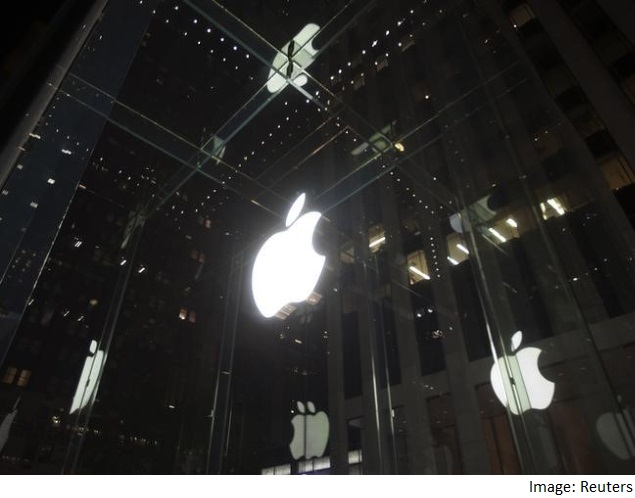Apple Buys Coherent Navigation, a GPS Company, to Bolster its Location Technology

For many of the largest Silicon Valley technology companies, location software undergirds numerous applications and features in their products.
For Apple, it has been a game of catch-up.
To that end, Apple confirmed on Sunday that it had purchased Coherent Navigation, a Bay Area global positioning company, further bolstering Apple's location technology and services.
"Apple buys smaller technology companies from time to time, and we generally do not discuss our purpose or plans," the company said in an email.
Founded in 2008, Coherent Navigation was a small firm that focused on creating commercial navigation services based on partnerships with companies like Boeing and Iridium, the satellite network operator, according to a description on the LinkedIn page of Paul Lego, the company's former chief executive.
Since its start, the importance of its technology has only grown.
Coherent Navigation worked on high-precision navigation systems, technology that is far stronger than many consumer-grade global positioning systems, which are typically accurate to within 3 to 5 meters. In the past, Coherent Navigation has also worked on autonomous navigation and robotics projects, according to previous company job listings, as well as projects for the Defense Department.
It is unclear exactly how Apple will use the company's services or technology, or if the company will incorporate its prior work into Apple's current products.
Terms of Apple's acquisition of Coherent Navigation were not disclosed.
The acquisition, which was first reported by the technology site MacRumors, is another in a string of location technology service acquisitions made by Apple over the past six years. The purchase of Placebase, a small mapping service, in 2009 represented Apple's transition to building its own mapping technology. Over the following years, Apple bought a string of companies in much the same vein, including Locationary and Hopstop.
Many of these acquisitions were part of a broader strategy to move away from reliance on Google Maps, Google's widely used navigation service. In 2012, Apple released its own mapping service using in-house technology as well as some licensed from TomTom, a Dutch digital mapping company. That replaced Apple's old mapping application, which was based on Google Maps.
Competition for location-based services has been intensifying, as some of Silicon Valley's largest tech companies vie for more control over such technologies.
In February, Uber, the ride-hailing startup, announced it had opened an institute for autonomous car research in Pittsburgh, where the company will work with the National Robotics Engineering Center and fund a series of robotics fellowships and professorships in partnership with Carnegie Mellon University.
More recently, a coalition of German automakers has been competing with Uber to acquire Nokia Here, the digital mapping arm of Nokia, the Finnish technology company. If Uber is successful, the move will help lessen its reliance on Google's mapping service, which currently underlies a significant part of Uber's navigation technology.
© 2015, The New York Times News Service
For the latest tech news and reviews, follow Gadgets 360 on X, Facebook, WhatsApp, Threads and Google News. For the latest videos on gadgets and tech, subscribe to our YouTube channel. If you want to know everything about top influencers, follow our in-house Who'sThat360 on Instagram and YouTube.
Related Stories
- Samsung Galaxy Unpacked 2025
- ChatGPT
- Redmi Note 14 Pro+
- iPhone 16
- Apple Vision Pro
- Oneplus 12
- OnePlus Nord CE 3 Lite 5G
- iPhone 13
- Xiaomi 14 Pro
- Oppo Find N3
- Tecno Spark Go (2023)
- Realme V30
- Best Phones Under 25000
- Samsung Galaxy S24 Series
- Cryptocurrency
- iQoo 12
- Samsung Galaxy S24 Ultra
- Giottus
- Samsung Galaxy Z Flip 5
- Apple 'Scary Fast'
- Housefull 5
- GoPro Hero 12 Black Review
- Invincible Season 2
- JioGlass
- HD Ready TV
- Laptop Under 50000
- Smartwatch Under 10000
- Latest Mobile Phones
- Compare Phones
- Moto G15 Power
- Moto G15
- Realme 14x 5G
- Poco M7 Pro 5G
- Poco C75 5G
- Vivo Y300 (China)
- HMD Arc
- Lava Blaze Duo 5G
- Asus Zenbook S 14
- MacBook Pro 16-inch (M4 Max, 2024)
- Honor Pad V9
- Tecno Megapad 11
- Redmi Watch 5
- Huawei Watch Ultimate Design
- Sony 65 Inches Ultra HD (4K) LED Smart TV (KD-65X74L)
- TCL 55 Inches Ultra HD (4K) LED Smart TV (55C61B)
- Sony PlayStation 5 Pro
- Sony PlayStation 5 Slim Digital Edition
- Blue Star 1.5 Ton 3 Star Inverter Split AC (IC318DNUHC)
- Blue Star 1.5 Ton 3 Star Inverter Split AC (IA318VKU)

















